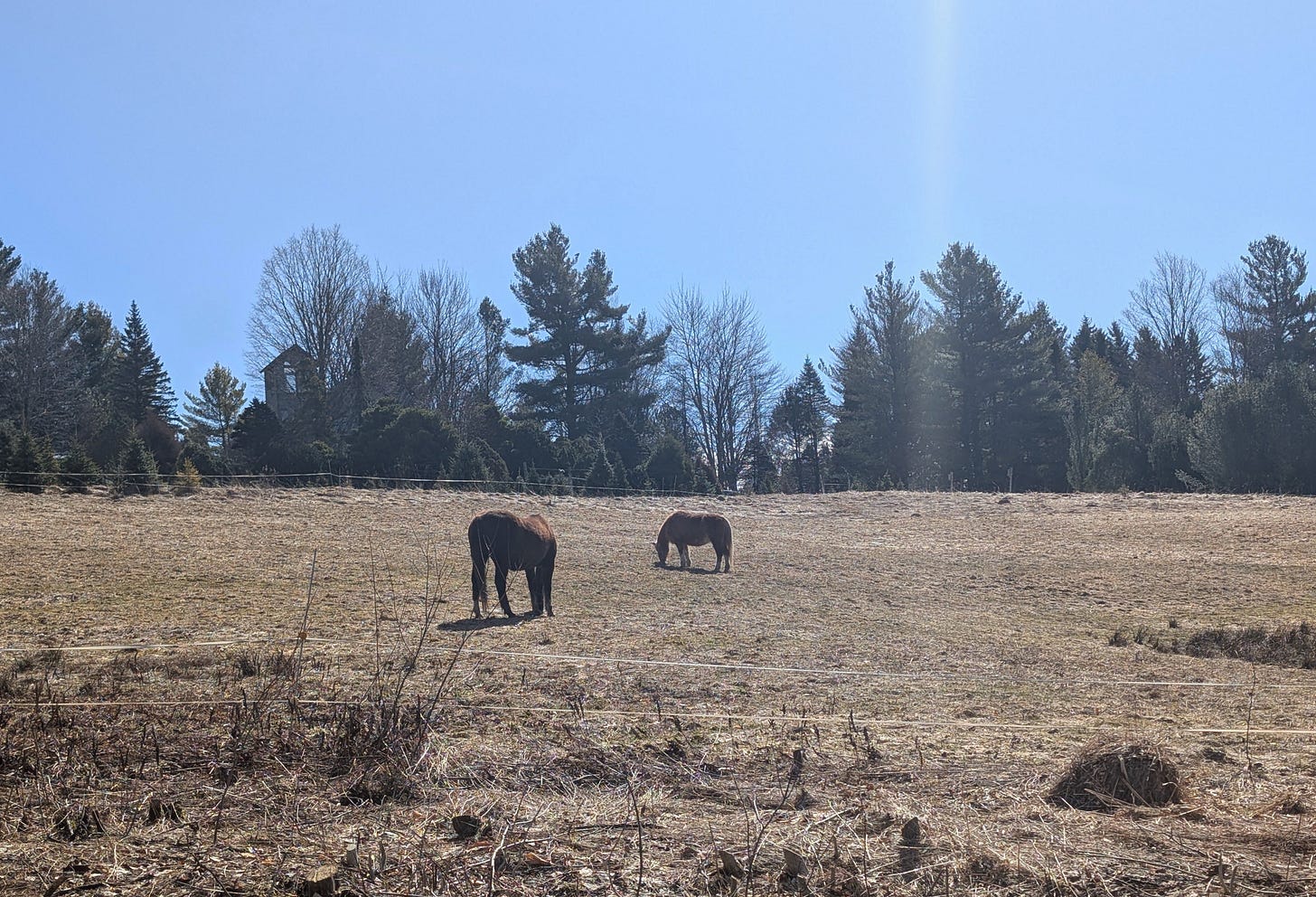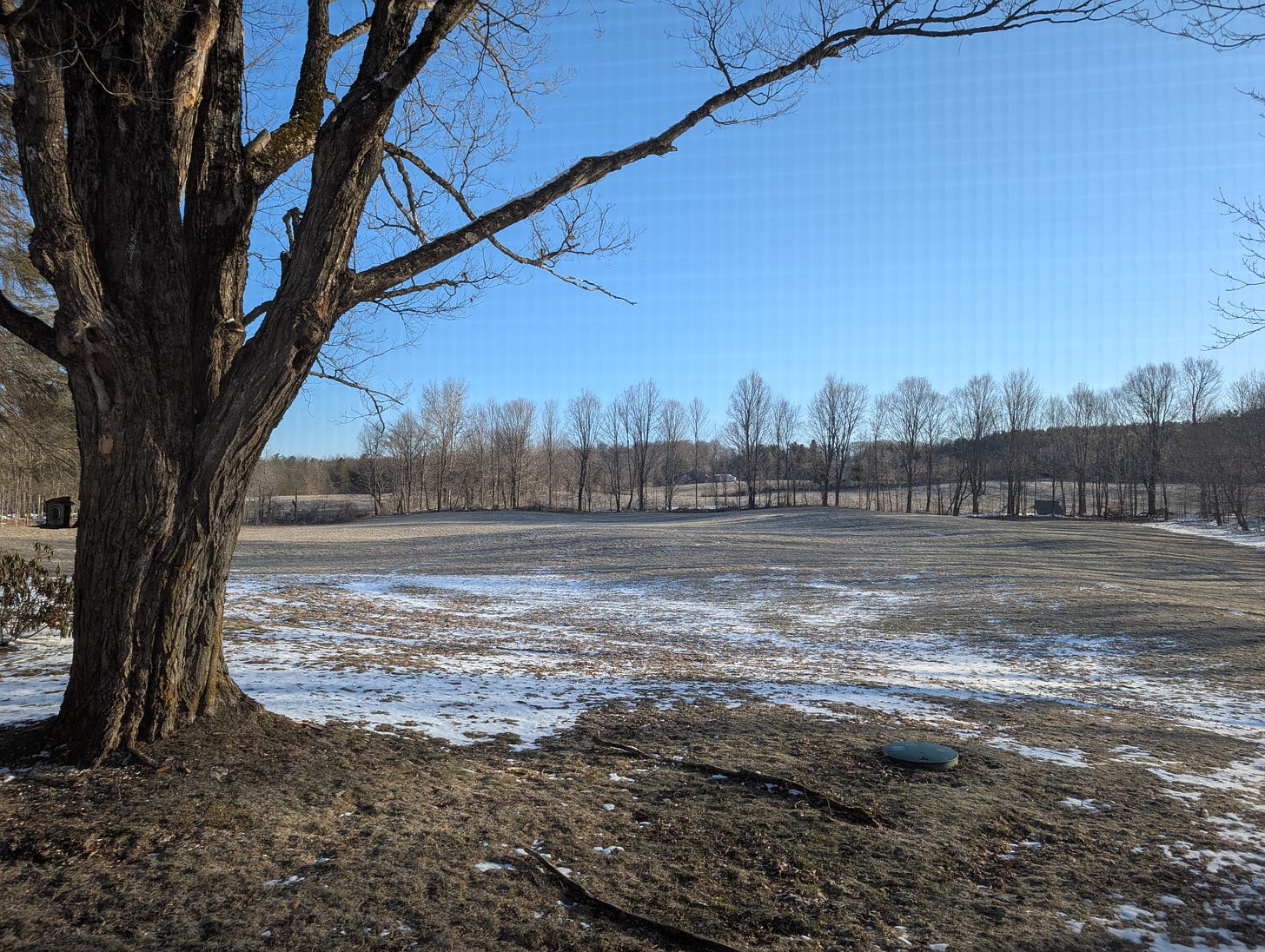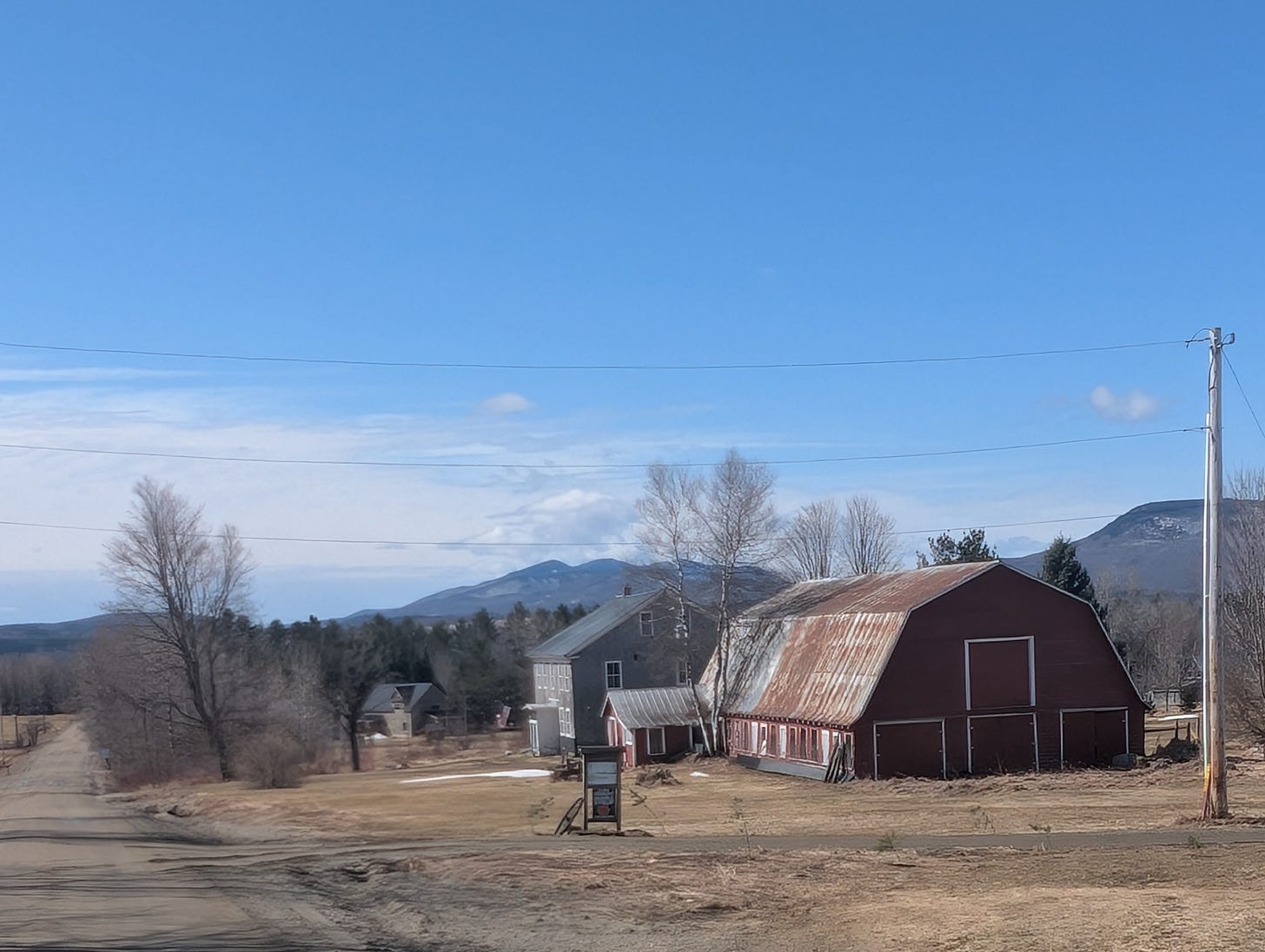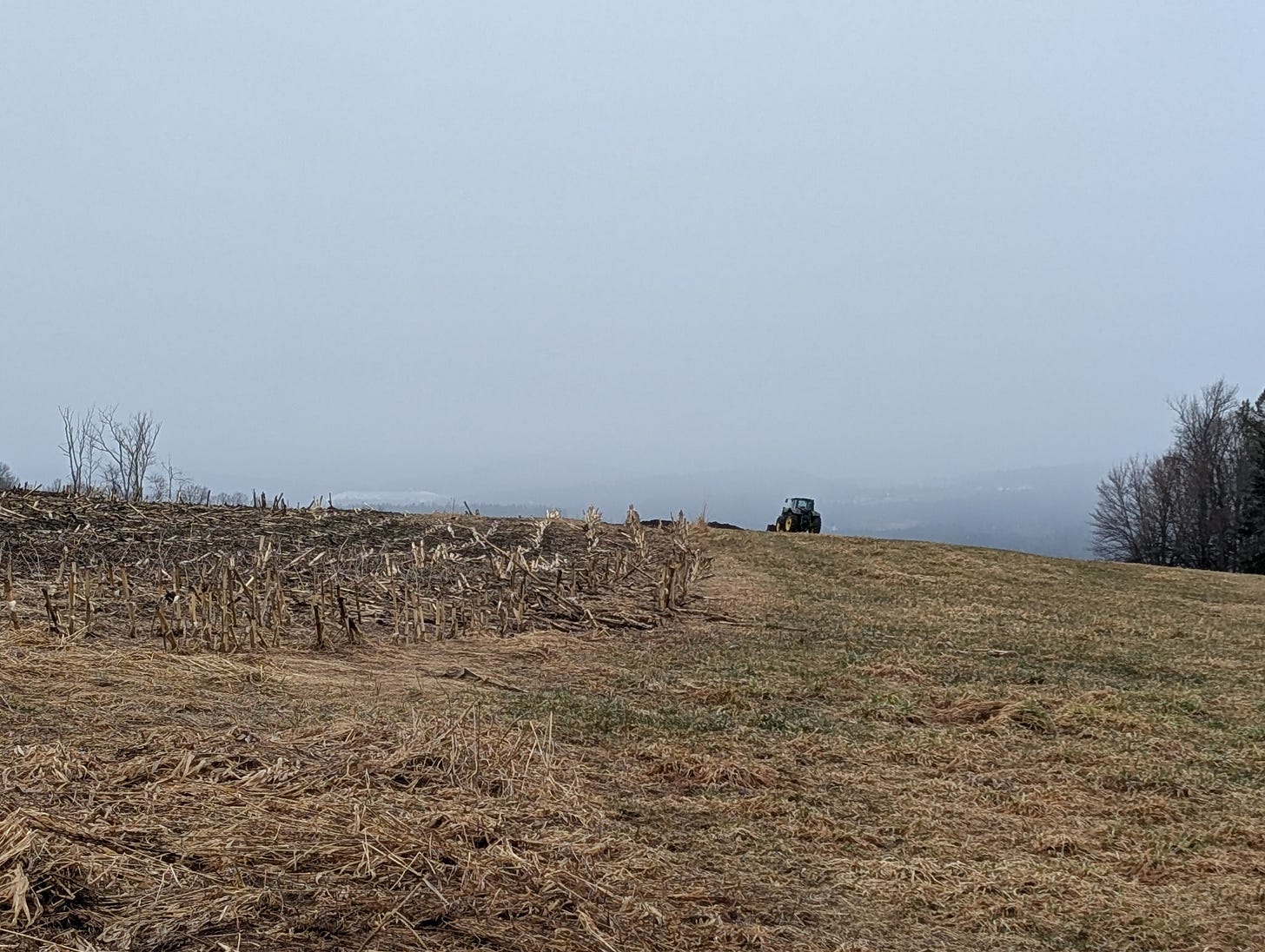When Truth Comes Together
Palm Sunday and the Passion
Jesus went on ahead, going up to Jerusalem.
When he had come near Bethphage and Bethany, at the place called the Mount of Olives, he sent two of the disciples, saying, “Go into the village ahead of you, and as you enter it you will find tied there a colt that has never been ridden. Untie it and bring it here. If anyone asks you, ‘Why are you untying it?’ just say this, ‘The Lord needs it.’ ” So those who were sent departed and found it as he had told them. As they were untying the colt, its owners asked them, “Why are you untying the colt?” They said, “The Lord needs it.” Then they brought it to Jesus, and after throwing their cloaks on the colt, they set Jesus on it. As he rode along, people kept spreading their cloaks on the road. Now as he was approaching the path down from the Mount of Olives, the whole multitude of the disciples began to praise God joyfully with a loud voice for all the deeds of power that they had seen, saying,
“Blessed is the king
who comes in the name of the Lord!
Peace in heaven,
and glory in the highest heaven!”Some of the Pharisees in the crowd said to him, “Teacher, order your disciples to stop.” He answered, “I tell you, if these were silent, the stones would shout out.”
Luke 19:28-40
It’s Palm Sunday, coming to the end of Lent and this sermon series on “living in truth,” and it’s all starting to come together for the disciples. Jesus, the Messiah, is here in Jerusalem. This whole journey they have been on, the truth they were learning bit by bit, was all starting to come together. Everything was finally drawing to completion—the Lord’s baptism, the calling from their fishing boats, the miracles, the transfiguration on the mountain, the teachings, the parables, the serving of the poor and the outcasts. Now on this Sunday, with palms waving, the echoes of joyous psalms bouncing off of the old stones of Jerusalem, one “Hosanna” bleeding into another, the King was here. The humble, servant king, the Godly king, the king in David’s line, the Messiah, anointed one. The prophecies were all coming together, 400 years of silence after Malachi coming to a close. The disciples just knew it was all meant to happen for this particular triumphant moment.
Well, it was, and it wasn’t. We know that it was just the beginning of the end and the end of the beginning.
Can you think of those seasons of your life when it felt like it was all coming together? Maybe it was when you were getting married, or having children, or got a life-changing job opportunity, maybe you’re in it now. Those wonderful seasons of life where it all clicks, your purpose is being fulfilled, everything is starting to make sense, find fullness, like the universe is conspiring for you, like that Monopoly card, “Bank Error In Your Favor.” This is that day for the disciples. The fun is just about to start. Your friends are all with you and doing great. You read an old prophecy from Zechariah about a king riding on a donkey and boom, someone has a donkey for the Lord. It’s all working perfectly.
And so here he was, Jesus in the truth of his kingship, riding in the majesty of his poverty and lowliness with the people. A king, yes, but not like the tyrants we knew; he was from backwater Galilee, a working-class man who knew how to make things. Victory was here, and God was doing a new thing with his Messiah, son of David, restoring the kingdom. And on the one hand, they were right.
They just didn’t know what kingdom he was restoring. Or how.
They didn’t know they were just getting a glimpse, a shadow of the full truth.
Now let’s go back to your life for a moment. Let’s say you’re no longer in that season where it was all coming together. Maybe it’s been a while. And when you think back, as wonderful as that time was, maybe there was a part that also felt, I don’t know, naive. One of those seasons for me was my first year of seminary.1 I never pictured myself being there, but, after a long and hard and aimless twenties, everything had suddenly come together. I had great and wonderful new friends, I was where I needed to be after so long struggling in Los Angeles, I was on the cutting edge of new research, opportunities were popping up left and right. It was all coming together. I felt like my story was done; fulfilled.
Maybe that’s what you’ve felt before, and what the disciples almost certainly felt. “Wonderful, great story. What a happy ending.” “This will make a great book!” If you had asked them, the Gospels could have been written then and there, signing off with Jesus riding in glory, The End.
But I know for me and my life story, and I imagine for you and yours, things weren’t quite what they seemed. They were more fragile than realized. For me, COVID-19 hit and changed everything, and then for the next couple of years, the truth I thought I knew started coming more and more apart. Maybe your “Palm Sunday” ended like the disciples, where it all started to break down, going from perfect parades to despair. There was something more to God’s work than you ever expected and far more than you ever wanted, and for a while, you might have even been convinced God wasn’t there.
Surely in the days ahead of seeing their loving Messiah endure everything, the disciples must have had some flashbacks to this Palm Sunday, nostalgia for the sweet moment, while seeing it turn into a nightmare. In the midst of their pain, they must have felt like Charlie Brown getting the football pulled away by Lucy, thinking, “Messiah? How naive we were, thinking it would be any different this time.”
Of course, Jesus would be one step ahead of them, as he always is in our life. I don’t know where you are now, how much has happened since the wonderful “Palm Sunday” time of your life, or what pain you have endured since, but I know that Jesus has been with you and working something new that you couldn’t see.
I also know it didn’t negate how beautiful and wonderful and true your “Palm Sunday” really was.
Because yes, even though the crowds would soon turn on Christ, and the “Hosannas” would turn to “crucify him,” and the palms to thorns and nails, we still celebrate Palm Sunday because Palm Sunday was still true. It still showed goodness and truth all coming together to show us who God is. It just isn’t the full story or the end of the story. Just like your full story is full of wildly more twists and turns through triumph and tragedy than you ever knew.
But Jesus is one step ahead of us. Think of that Palm Sunday from his perspective. He wasn’t naive going in; he knew what was going to happen. As he was watching and seeing the crowds adore him, from the shallow height of a donkey’s back, enjoying his disciples and their joy, it must have been in the back of his mind, “I know how this is going to go. I know you will all turn on me. But I still love you, and I'm going to love this moment with you, and I’m going to make sure you love this moment.” Remember that not only does Jesus love you for what you’ve done, he loves you even knowing the sin you’re capable of that you don’t know yet. As the priest Hannah King said, in this story, we sit with this: “[We] hail a king of [our] imagining, only to reject him later when he doesn't embrace [our] power plays,” yet he always has “willingness to reorient and restore those who repent.”
Jesus is always one step ahead of us. From the disciples' perspective, yes, the truth had all come together. But the full truth, Jesus knew, was yet to come. And in your life, it is still yet to come too. So whether you find yourself shouting “Hosanna” or “Lord, have mercy on me, a sinner,” or maybe even find yourself accidentally crucifying God one day, Jesus is ahead of you, but he is still loving you and with you.
As we walk through this Holy Week, it’s important to walk with each step of it, truth playing out in its fullness. We can see the long process of God’s story playing out up to this point through all the prophets and priests and patriarchs and the pain of Israel coming together. And God has so loved us that he has gifted us the experience of this life here and now to delight in this life, or as my theological ancestors said, “To glorify God and enjoy him forever.”2 And he gives us the Palm Sundays of our life even knowing there is pain to come after it, even knowing we’ll reject him one way or another, and we ourselves will suffer, but like the Prodigal Father he will keep being extravagant with his love for us. Jesus was still writing humanity’s story after Palm Sunday, and your story is still being written too.
As for me and my story, my truth had fallen apart hard in seminary. And in wonderful northern Vermont, God has been putting me back together by his grace through all of you. And wherever you are in your story, you have an advantage over the disciples—you know Jesus is still with you even when it seems like he’s not. They didn’t even know how the truth they thought they knew was going to fall apart or how they’d be put back together.
They thought the truth of “take up your cross and follow me” was a parade; they didn’t know. They didn’t know Christ the King was just a shadow and a type of the fullness of his Truth—the glory, the goodness, the celebrations of that day were just a shadow of the true divine celebration with God in eternity. They didn’t know what kind of kingdom this Messiah, son of David, was restoring.
He wasn’t here to restore the earthly kingdom of Israel. He came to restore nothing less than the kingdom of God as established in the fabric of the cosmos, to restore the goodness of his creation, the very goodness of the universe that has been so torn and twisted by evil, sin, and death.
It was so much bigger than they imagined. It went so much deeper than they imagined. It cut at the heart of human darkness in a way they couldn’t have imagined. And it restored us in a way we can still barely imagine.
So today we still celebrate with the king in anticipation of his true kingship. We celebrate this triumph knowing that the truer triumph is coming, and this is just a shadow. It’s a shadow that Jesus will walk in this week. In Holy Week, will you walk with him in the shadow of his cross? Because he is always walking with you in yours.
I technically went to a “divinity school,” but it’s always felt more natural to say “seminary” for some reason. If you want to know the technical difference, a seminary is a standalone theological school, while a divinity school connotes being a graduate school of a university.








